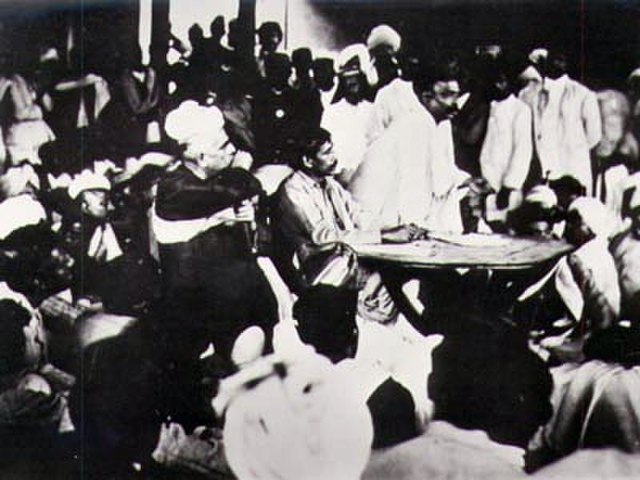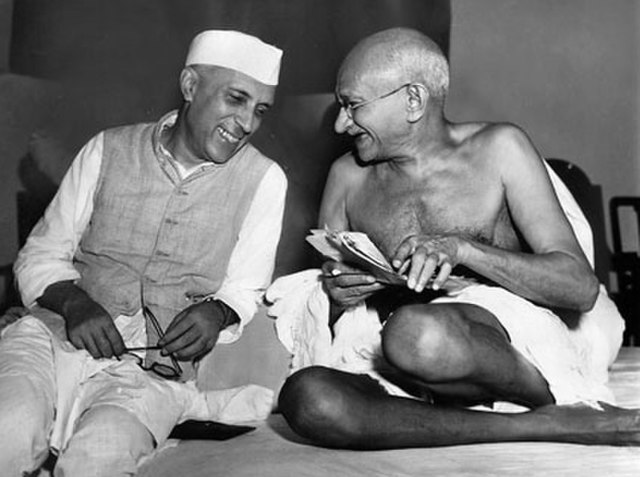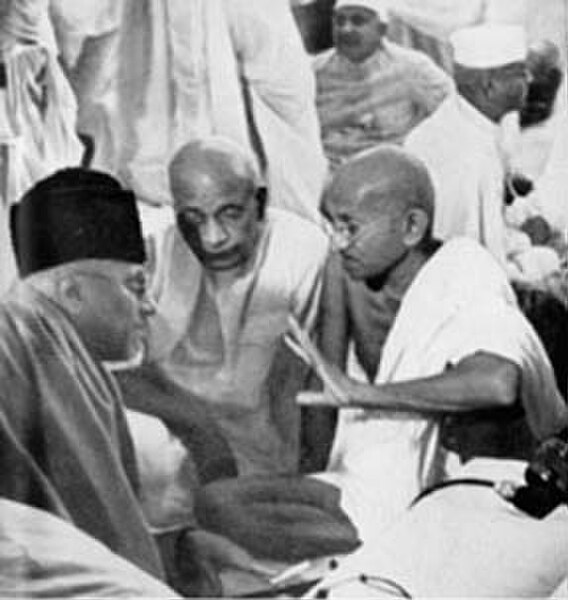The Declaration of Purna Swaraj was a resolution which was passed in 1930 because of the dissatisfaction among the Indian masses regarding the British offer of Dominion status to India. The word Purna Swaraj was derived from Sanskrit पूर्ण (Pūrṇa) 'Complete', and स्वराज (Svarāja) 'Self-rule or Sovereignty', or Declaration of the Independence of India, it was promulgated by the Indian National Congress, resolving the Congress and Indian nationalists to fight for Purna Swaraj, or complete self-rule/total independence from the British rule.
Jawaharlal Nehru demands "complete independence from Great Britain" in 1929.
The Indian National Congress (INC), colloquially the Congress Party or simply the Congress, is a political party in India with deep roots in most regions of India. Founded on 28 December 1885, it was the first modern nationalist movement to emerge in the British Empire in Asia and Africa. From the late 19th century, and especially after 1920, under the leadership of Mahatma Gandhi, the Congress became the principal leader of the Indian independence movement. The Congress led India to independence from the United Kingdom, and significantly influenced other anti-colonial nationalist movements in the British Empire.
First session of Indian National Congress, Bombay, 28–31 December 1885
Bal Gangadhar Tilak speaking in 1907 as the Party split into moderates and extremists. Seated at the table is Aurobindo Ghosh and to his right (in the chair) is G. S. Khaparde, both allies of Tilak.
Mahatma Gandhi and Jawaharlal Nehru during a meeting of the All India Congress, in 1946
Azad, Patel and Gandhi at an AICC meeting in Bombay, 1940





